Following on from the Auckland Writers Festival, David Hill answers the perennial question of authors everywhere: why do you write?
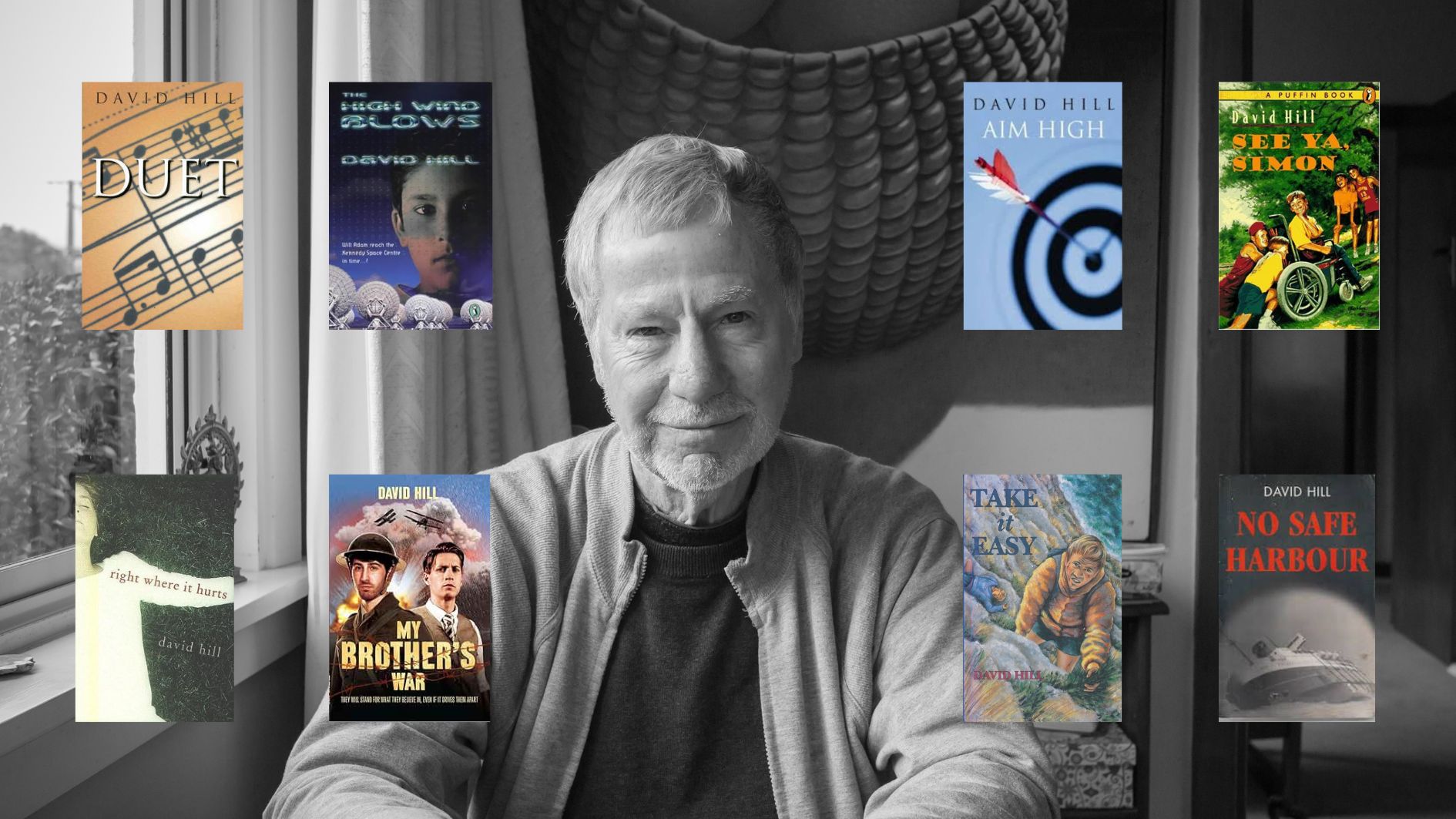
In Graeme Lay’s first novel, The Mentor, a sultry female follower approaches the author-narrator, and breathes “Tell me: why do you write?”
It’s a scene that makes me jealous, partly because Graeme renders it so well, and partly because I’ve never been approached by a sultry female in such a manner.
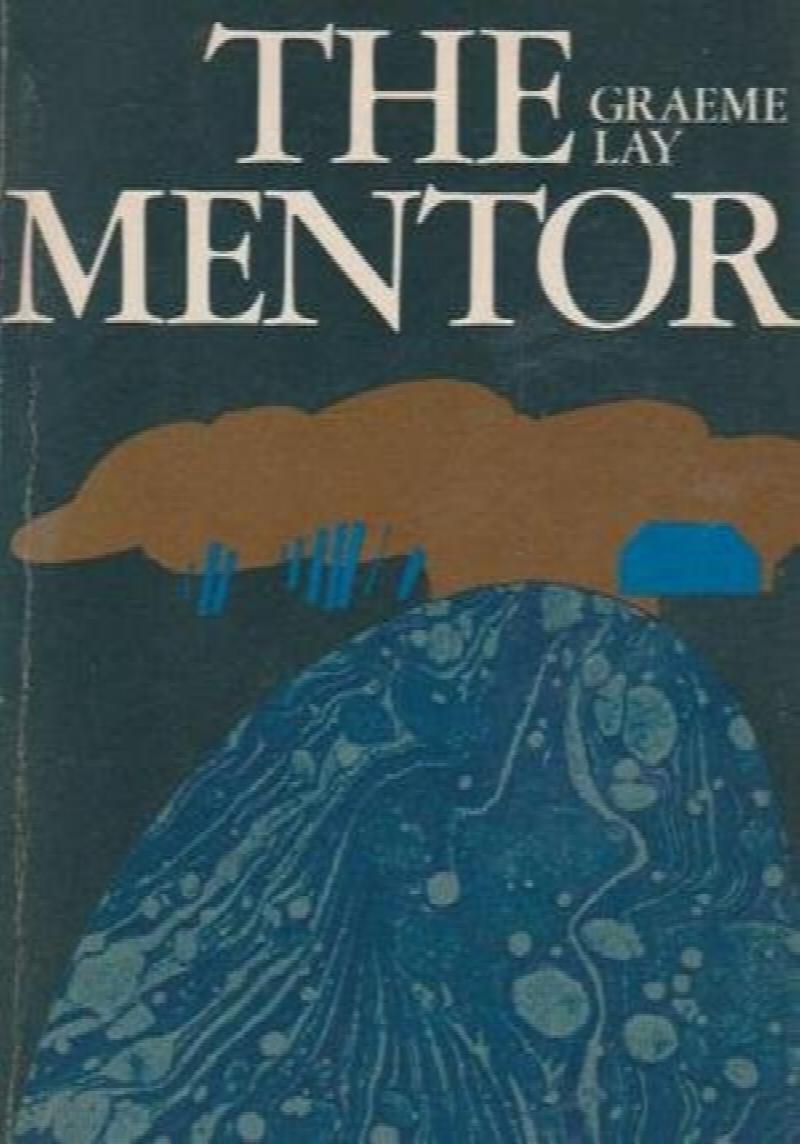
Lots of others have asked me, though. Most recently, at the Auckland Writers’ Festival, a 10-year-old demanded “What’s your inspiration for writing?” (The fact that another 10-year-old had asked the same thing just three minutes earlier is irrelevant; this demand was Questioner Two’s intellectual property.)
To Interrogator The First, I replied “The power bill.” A cheap, dismissive line, I know, but I do like to stress that writing is my job as well as my pleasure.
To Interrogator The Second, I responded “To feel good.” That sounds pretty glib, too, but again, I’m trying to make a point. I feel better when I write (more on that later). And quite often in stories, I retell events that have happened to me, always performing much more admirably in the story than I did in real life.
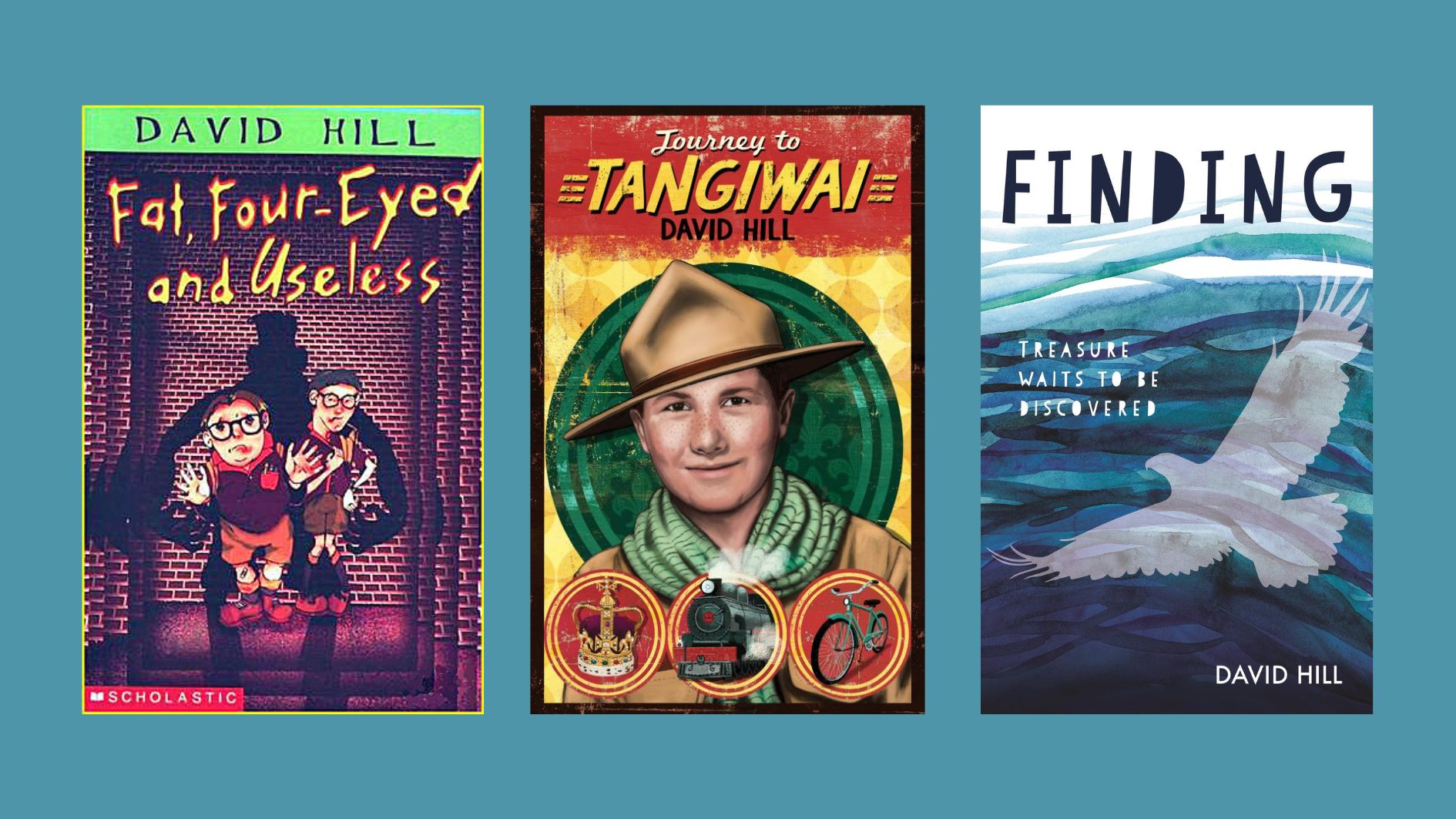
So, on the most trite level, I wrote a series of sports novels, in which the character based on me scored more tries/goals than I ever managed to. I wrote Fat, Four-Eyed and Useless, where a plump, myopic kid (me! me!) finds social success through joining a school writing group.
I’ve written books so that I can bang on about my hobbies: Aim High (archery); Take It Easy (tramping); The High Wind Blows (astronomy). It’s a bit like making people look at your holiday photos.
More significantly, I’ve written in order to acknowledge people who mattered to me. My parents. My Uncle Fred (more on him later as well). My kids (See Ya, Simon and Journey to Tangiwai), grandkids, friends. Many of them are in Finding, my one attempt at a family saga.
I’ve written because publishers asked me to (picture books on famous New Zealanders), or—more urgently—because an internal voice ordered me to. That voice often wonders “What if….?” What if these kids from a youth orchestra began a relationship? (Duet) What if I’d been on the Wahine? (No Safe Harbour) What if that boy and girl went into a forbidden tunnel? (Below). What if that teenager had listened to his father as they started crossing the rock-slide? (Stepping Out, due 2025).
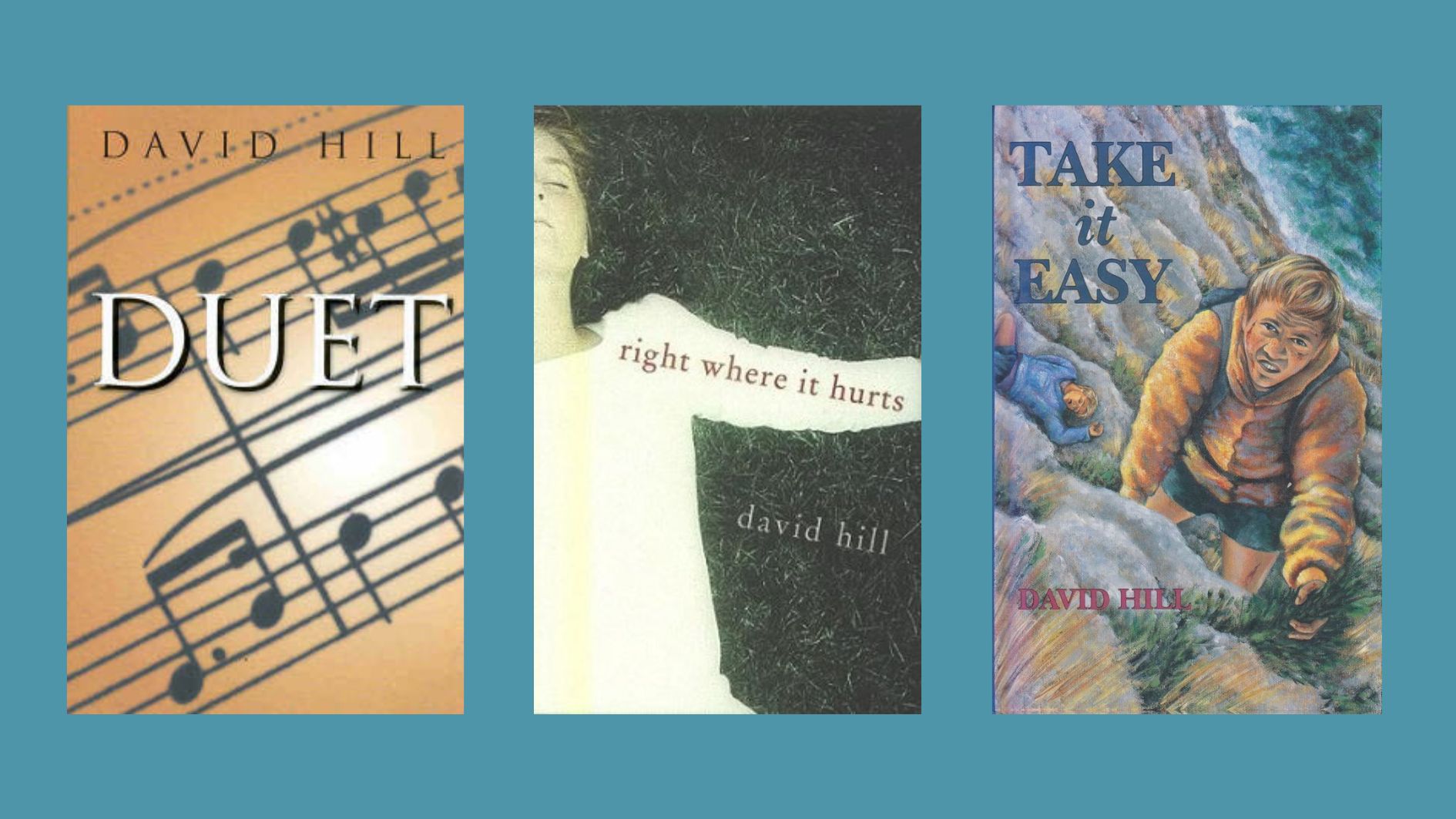
And I’ve written in order to apologise. A Year 12 girl my wife Beth taught, a sensitive, talented kid, turned out to be self-harming: cutting and burning herself if she felt she’d somehow failed. When Beth told me, my reaction was “How sick!” I’m glad to report that my ignorance was quickly followed by shame, and by an attempt to understand the distressing syndrome, that ultimately led to a book called Right Where It Hurts.
My Uncle Fred is another I’ve apologised to. The gentle, retired farmer seemed the most boring old man in the world when I was an arrogant adolescent. It wasn’t till his funeral, when figure after figure with RSA badges and walking sticks praised “the best mate a bloke could have….the bravest….deserved every medal they gave him” that I bothered to ask my father about his much older brother.
Dad told me of the 16-year-old who pretended he was 18, so he could enlist in WWI, endured the horrors of Passchendaele, carried a wounded comrade back across No Man’s Land while bullets tore past. When another friend was killed later, Fred threw his medals away. He came back to NZ, wanted only peace and forgetfulness. Years later, I wrote My Brother’s War, in which one of the young protagonists is so much my Uncle. It’s my attempt to say I was sorry for my ignorance. So is the one I’m flailing at just now, set during the 1950s Malayan insurgency, and featuring an elder cousin of mine.
We all know how reading can take us deep into a place where the world’s noise and distractions vanish. Writing can do that too.
Why else do I write? For the satisfaction of making something that hasn’t existed before. Because I find my sense of self-definition and self-worth shrinking if I don’t do so. (W H Auden reckoned he felt sick if he wasn’t writing, which is the same thing more colourfully put—he was a poet, after all.)
I write for the friendships I form, with my characters and with readers. I do it to share things. All authors, and children’s authors in particular, know that pleasure when a class or audience reacts with delighted recognition to something you’ve read them. For a few moments, maybe longer if you’re lucky, a sense of community enfolds you all.
I write for the surprises it can bring. Where did that phrase/idea/character come from? I’ve had several jobs in my life, and the apparently sedentary, silent occupation of writing has proved the most exciting of them all. Beth says that I exclaim out loud, hit the desk if something promising comes. I couldn’t possibly comment.
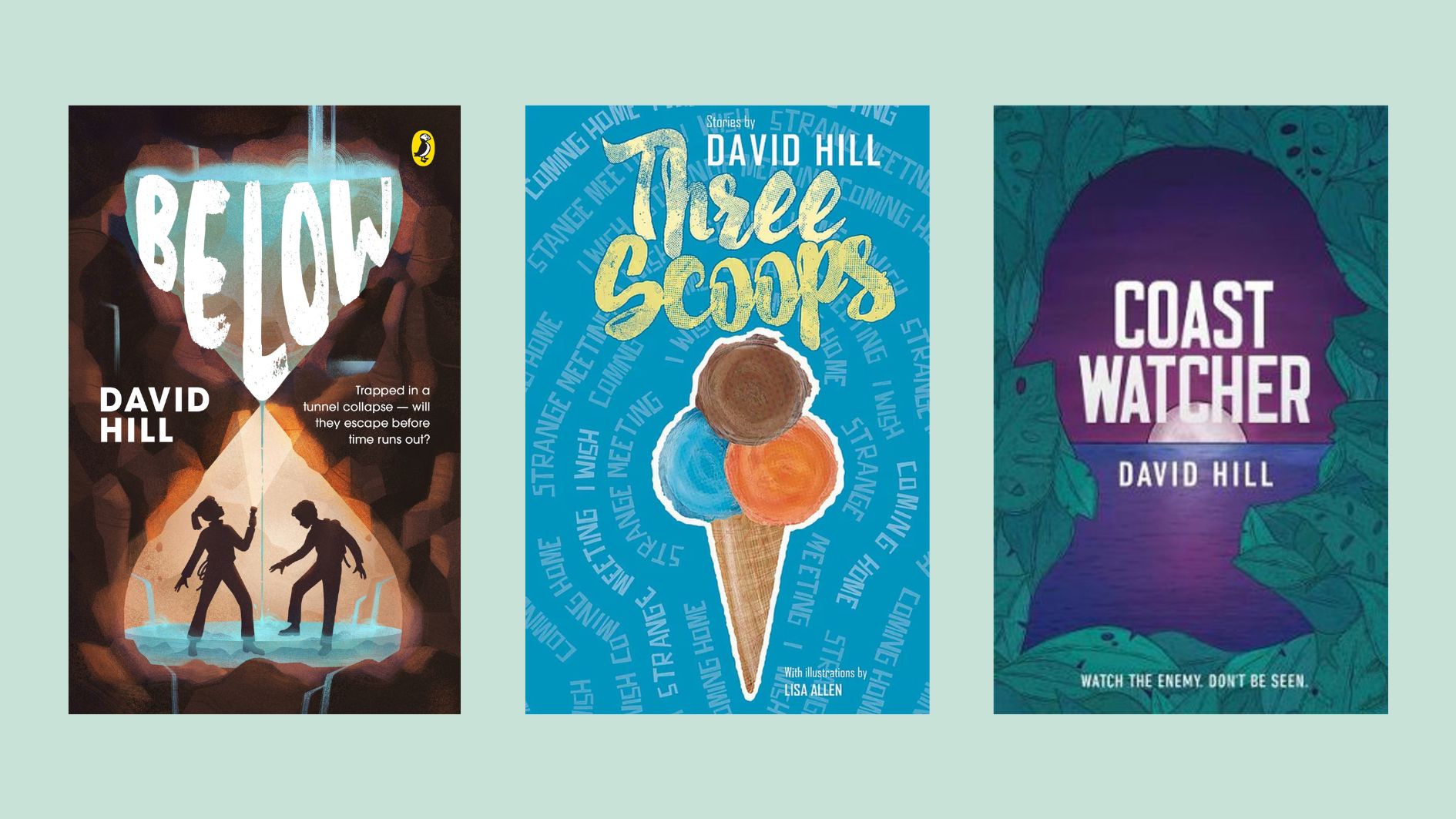
I write as well to make peace with myself—as I said paragraphs back, to feel better. We all know how reading can take us deep into a place where the world’s noise and distractions vanish. Writing can do that too. On the best days, you move into a zone which is one of simultaneous profound calm and frenetic activity, what Lionel Shriver called “floating on a sea of solitude.” If you’re lucky, you get up after 90…150 minutes, tranquil and elated, fulfilled and exorcised.
Maurice Gee called it “the best feeling I know.” Me, too. It remains my ultimate definition of job—and life—satisfaction.

David Hill
David Hill is a prolific and highly regarded New Zealand writer, playwright, poet, columnist and critic. Best known for his highly popular and award-winning body of work for young people, ranging from picture books to teenage fiction, his novels have been published all around the world and translated into several languages, and his short stories and plays for young people have been broadcast here and overseas. He reviews books on Radio NZ, and across a wide range of print media.



